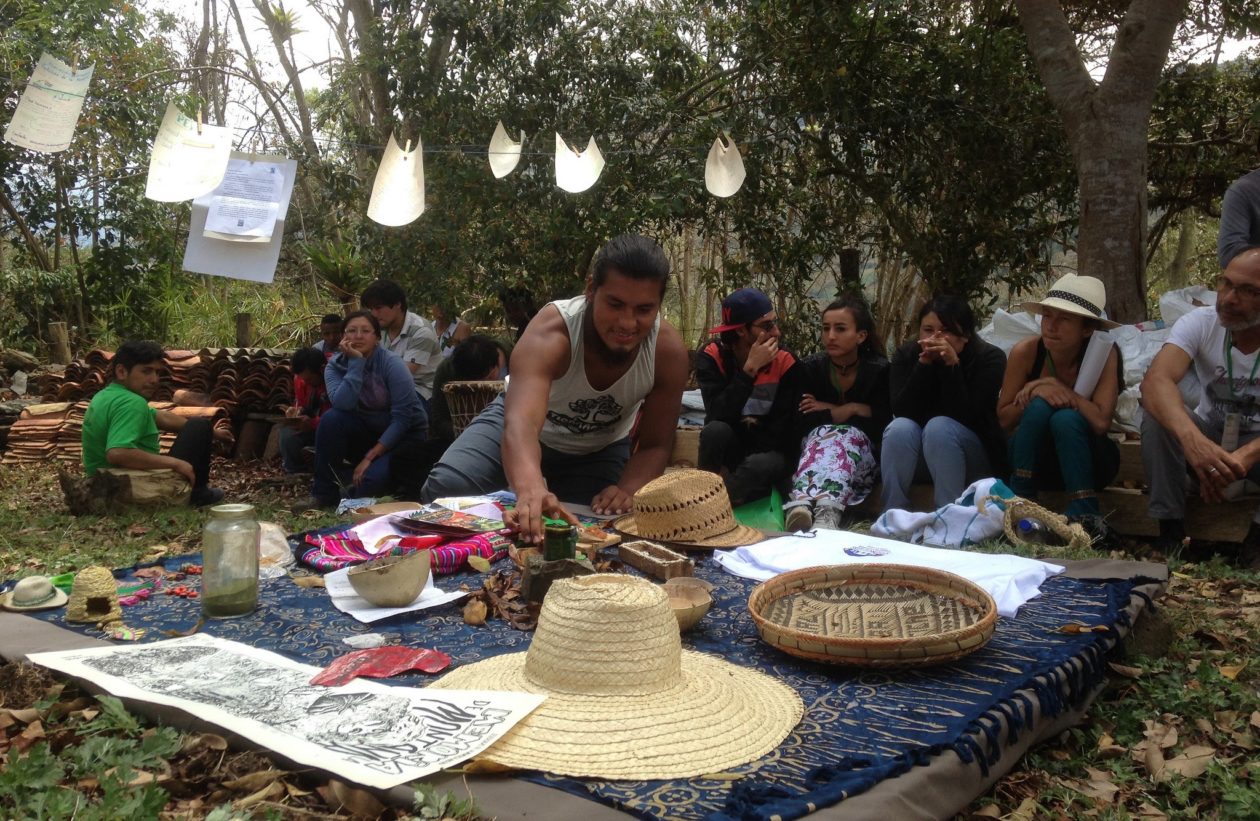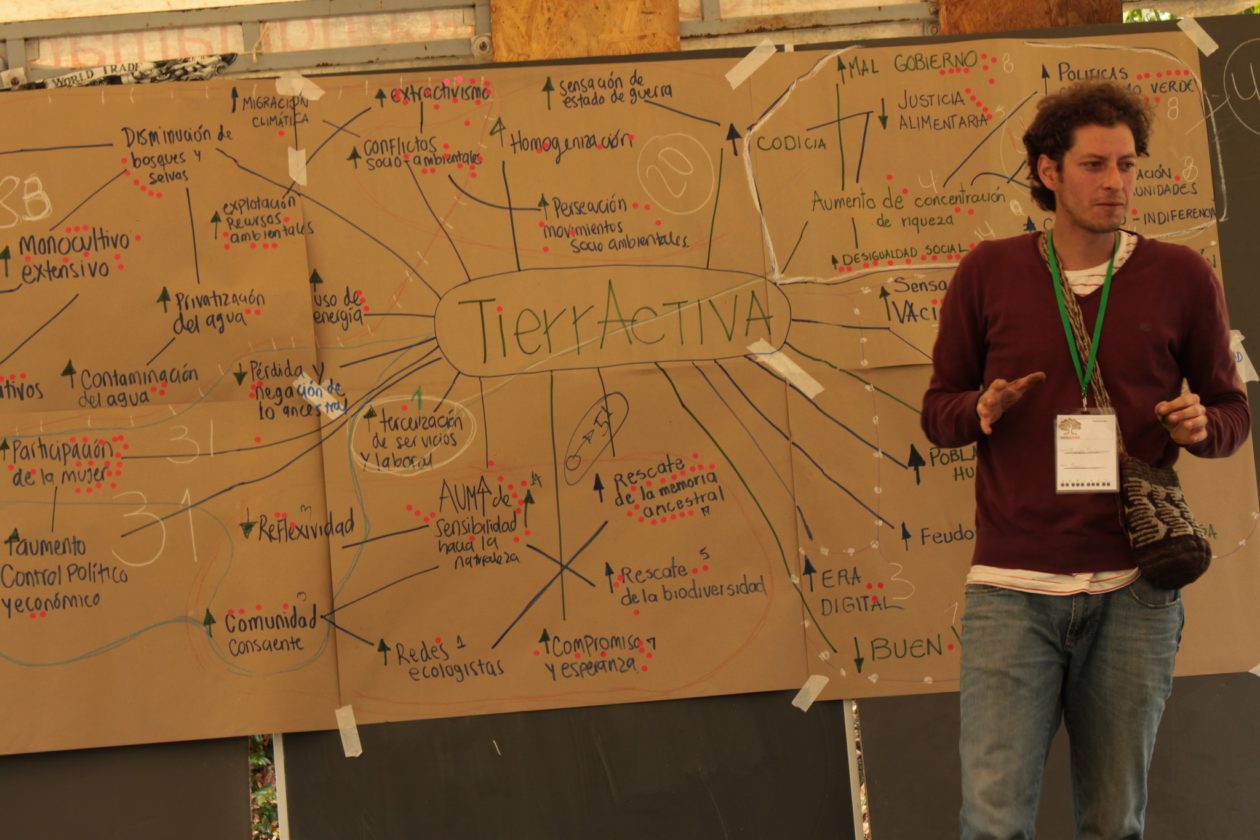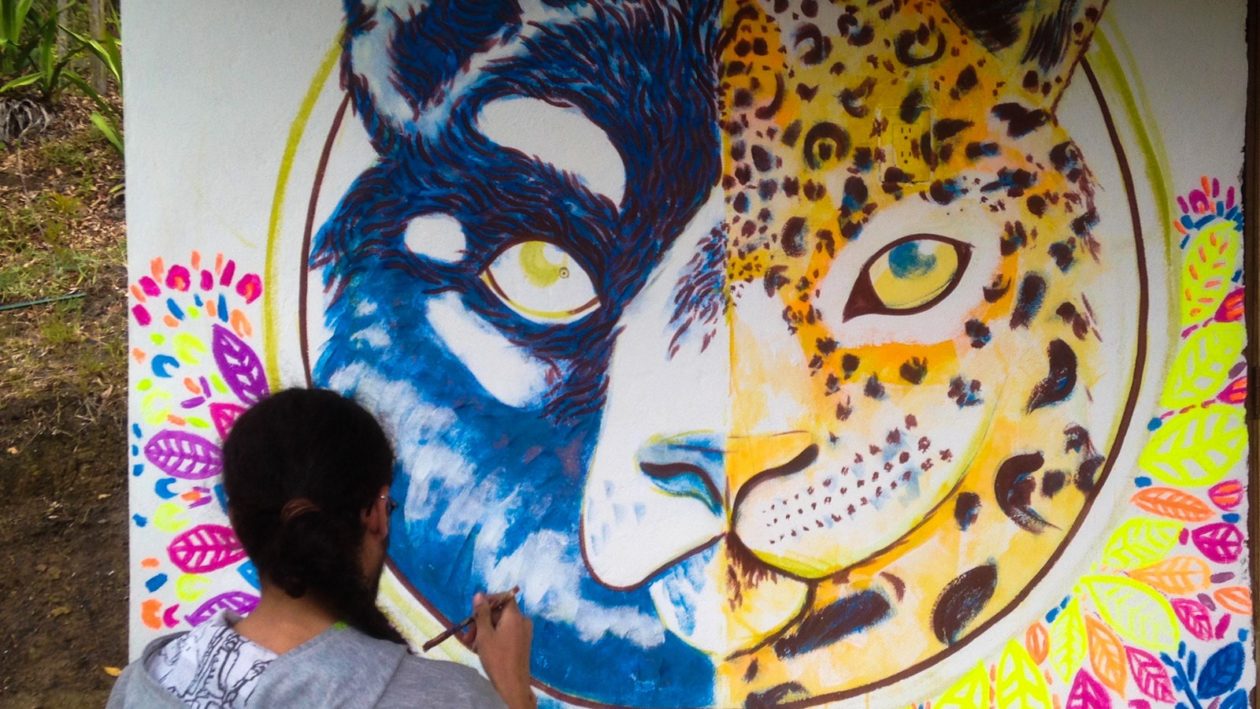Words by Majandra Rodriguez Acha and the TierrActiva Colombia team with special input from Jorge Jimenez Castro.
In 2017, TierrActiva Latin America received a $7,500 grant to organize a climate justice gathering in Machetá, Colombia as the first official activity of the network. Over three days, the group welcomed 80 youth climate leaders of various races and genders from Bolivia, Peru and Colombia. Through many different activities, the leaders bonded and discussed their shared environmental justice issues, resulting in creative and collaborative solutions.
From the 24th to the 27th of February 2017, close to 80 environmental leaders from Bolivia, Peru and Colombia gathered in Machetá, Cundinamarca, Colombia, an area historically populated by Muiska communities, and where three rivers meet to form the Guatanfur River.
The gathering marked the creation of TierrActiva Colombia, a national climate and environmental justice network led by young activists. It was also the first time that members from the sister networks TierrActiva Peru and Bolivia met with the Colombian group.
This inaugural TierrActiva Latin America gathering brought together leaders from a diversity of regions, genders, sexualities and ethnicities. It spurred intense dialogue and reflection, and sought to bring body and emotion to work that all too often remains in the realm of reason. To achieve this, gathering organizers based the methodology on deep ecology, connecting emotion and action, and honoring the individual and collective pain tied to the struggles for justice in our territories. They put together games, and artistic representations that sought to encourage new perspectives through the exercise of empathy.

Photo: Juan Pablo Pacheco
Participants shared their knowledge and skills with each other through workshops, and put together theatre representing environmental issues in Colombia, from the mono cropping of sugar cane in the Cauca Valley to fracking in Puente Boyacá, reflecting critically on the antagonisms that tend to characterize local struggles. This generated a lively debate, as we are not used to questioning commonly held ideas of “friend” and “foe” in our struggles.
In another activity, participants placed their local struggles within a broader system of injustice and oppression, understanding their historical, multi-layered and interdependent character. It was not easy, as many participants had previously worked looking at issues from either just the global, or just the local level. Participants were able to extract a complex trends map, linking together and analyzing problems at diverse levels: war, the invisibility of women, the commodification of biodiversity, and among others, the disconnection of human beings with themselves, with each other and with the Earth.
Participants recognized that the effects of this sense of disconnection include the loss of values, impotence, and the feeling of emptiness, emotions also marked by discrimination, sickness, violence, anthropocentrism and consumerism. As possibilities for transformation, participants imagined a world centered on community, solidarity and organization, allowing for a concrete exercise of social justice, empowerment and resistance to keep collective memory alive. As concrete tools, they identified communication, ancestral memory, affect, respect, love, interior transformation, listening to others and minga (traditional practices of collective work).

Photo: Giuseppe Basile
Finally, participants had an open dialogue about their strengths, weaknesses, limitations and opportunities, as a group with the intention to organize across diverse contexts and regions. They highlighted their cultural, regional, intergenerational and thematic diversity, and systemic approach, as valuable for cooperation and mutual understanding with multiple struggles. Their shared objective of caring for the Earth and life, despite their different contexts and areas of work, was seen as a great achievement, as the system in which we are immerse pressures us for separation and isolation based on difference.
Looking ahead, the TierrActiva Colombia activists seek to continue organizing in an organic and autonomous manner, and increasing the visibility of injustices and socio-environmental struggles in their territories. Concretely, they are committed to creating and fomenting physical, concrete spaces for dialogue and popular education, where practical knowledge and tools for activists and leaders for socio-environmental justice can be shared, such as the Amolando Sabiduría School for Popular Education in La Vega. Through Amolando Sabiduría, they currently sell coffee from the Cauca in Bogota, and implement awareness workshops about the popular consultation against mining, strengthening networks of support for resistances to mining in this territory and others. Through this project and others, they seek to continue weaving their struggles for the care of life and the Earth.

Photo: Natalia Londoño Ortiz
